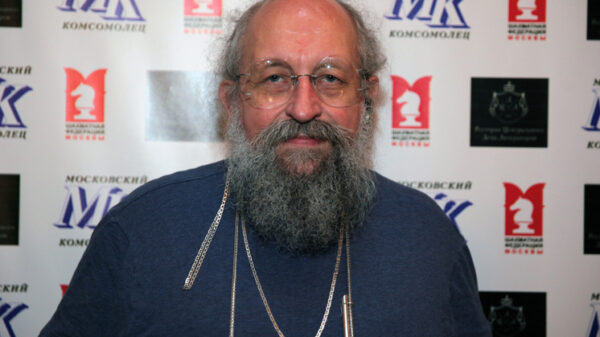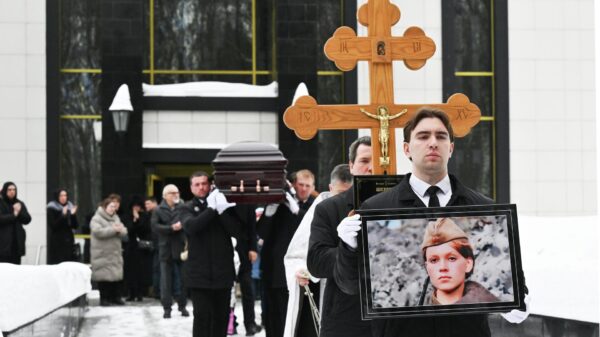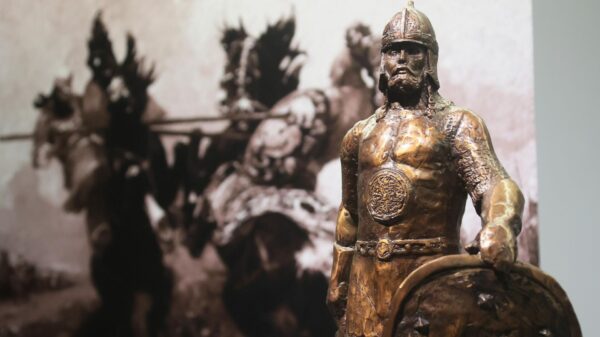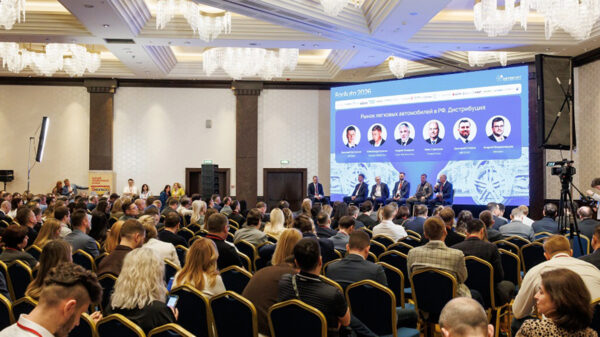 Tony Bloom, David Weir and Roberto De Zerbi are key to Brighton's success
Tony Bloom, David Weir and Roberto De Zerbi are key to Brighton's success
There's a slogan that hits you as you walk up stairs at the Brighton training ground. “Brighton Team Values: We never give up,” it says. It is unmissable, as is the mission statement that follows it along the wall and under the heading “Brighton & Hove Albion's strategy 2020-24.»
The statement, which covers everything from player recruitment to culture, identity and well-being, was written by former technical director Dan Ashworth, who, like many other Brighton residents, was lured away by a wealthier club when Newcastle United made him an astronomical offer.
It didn't matter. Brighton is going from strength to strength and Ashworth's successor, David Weir, will soon publish his version of the plan for the next four years.
This is the inside story of what makes a company the best run and Europe's most talked about club, whose football has been described by Telegraph columnist Jamie Carragher as «out of this world», is a tick.
The Climbing Wall Club for goalkeepers and dog walkers  The amenities in Brighton are undoubtedly world class. Photo: Paul Hazlewood/Brighton and Hove Albion < p>This is a club that narrowly avoided relegation just 26 years ago and is now fighting for a place in the Champions League. They played their first game in European competition in their 122-year history when they were unfortunate to lose 3-2 to AEK Athens in the Europa League on Thursday despite having 75 per cent possession.
The amenities in Brighton are undoubtedly world class. Photo: Paul Hazlewood/Brighton and Hove Albion < p>This is a club that narrowly avoided relegation just 26 years ago and is now fighting for a place in the Champions League. They played their first game in European competition in their 122-year history when they were unfortunate to lose 3-2 to AEK Athens in the Europa League on Thursday despite having 75 per cent possession.
Telegraph Sport was given unprecedented access to see how Brighton operate, including interviews and insight into the incredible level of detail required to achieve success and, as Weir describes it, the “identity and values” set out by club owner Tony. Bloom.
This ranges from loaning Ansu Fati from Barcelona to finding a dog walker for defender Jan Paul van Hecke and a five-star spa at the training ground. This is an extraordinary characteristic: one of the showers has a “Caribbean storm” and “tropical rain” regime. One former player inquired about installing a similar shower in his home before being told how much it would cost.
There is a relaxation room and yoga studio near the spa. Behind it there are three rooms with sleeping capsules. Downstairs there are hyperbaric and hyperbaric chambers to aid recovery, as well as a treatment area and gym for the first team, including a teqball table where Paraguayan striker Julio Enciso is king, and there's even a climbing wall to help goalkeepers improve their tackle. This establishment is undoubtedly world class, with breakfast served from 8am. Japan international Kaoru Mitoma and, unsurprisingly, James Milner are in the building and ready to go. So does De Zerbi.
Player «Roberto is like the big brother I never had»  Roberto De Zerbi took Adam Lallana (right) under his wing. Photo: Adam Vaughan/Shutterstock
Roberto De Zerbi took Adam Lallana (right) under his wing. Photo: Adam Vaughan/Shutterstock
Adam Lallana displays rare emotion and intensity when he talks about Brighton, which is all the more remarkable given what the 35-year-old former England international has achieved during his stellar career.
“My relationship with Roberto is like an older brother and sister,” says Lallana, and the way he discusses Roberto De Zerbi is touching. When Lallana was injured last season, he was allowed to «shadow» the head coach for four months.
«Manager? I don't know how he does it,» says Lallana. «Preparing for every game. He will have Italian coaches at home, a chef will cook the food, watch the games — that's his life. His family is in Italy, and he sacrifices a lot. He puts everything into it. It's not luck, I'll tell you that. He's obsessed. No wonder they smoke cigarettes. He's a different breed.»
Lallana signed for Liverpool after his contract expired in July 2020. He had other offers and was advised by former team-mates to move elsewhere, but he was persuaded to this «project» after a call from the club's then technical director Ashworth.
“Dan got a lot more than he bargained for and that may not sound like much… but I know I made an impact on the football club, I know I did. Not only me. Together. It’s such a nice place to come and work day in and day out,” adds Lallana.He’s just come from Friday training and even though Brighton lost to AEK the night before, the game was «tight» as it should be in the Premier League. “If we don't do this, we will be punished,” Lallana says. “It's merciless. You can't get into the air.»
 Brighton lost 3-2 to AEK Athens on their European debut. Photo: Glyn Kirke/AFP
Brighton lost 3-2 to AEK Athens on their European debut. Photo: Glyn Kirke/AFP
While he is full of praise for Ashworth and former head coach Graham Potter, it is clear that things have taken things to the next level at Brighton and Lallana since De Zerbi's arrival.
“Roberto is like the big brother I never had,” Lallana says. “He's demanding as hell, but I always want to impress him and make sure he doesn't give up on me. His demands are extremely high. In some ways he is as demanding as [Klopp] Jurgen, but in a different way. The coach is obsessed with tactics and that is the Italian in him, whereas Jurgen was obsessed with emotional football. They're different, but they both work.
«There were times when I walked off the training ground (at Brighton) and told the guys: 'Don't worry, it's coming from a good place.' He asks more of you because he believes in you. He wouldn't worry if you weren't in his plans.»
«But there are times when you're out there and it's like, 'Wow!' Just obsessing over the details if you don't get it right. That's where players can help each other and reassure each other. Roberto really says, » I’m breaking your balls for a reason.’ I heard him say that, and that’s good.”
Lallana is considering a career in management, winning coaching awards and mentoring under-21 players. “The manager makes it easy for me to get into it,” he says. “He let me shadow him for four months at the end of last season when I was injured. It's like what an older brother would do: you want your little brother to always be with you. Our relationship is not like other relationships in clubs. He's 44, I'm 35, so there's an age difference that would make him my brother.
“In the past, Mauricio [Pochettino at Southampton] or Jurgen were more of a father figure. It's a cool relationship. Really cool.”
De Zerbi, he says, has “gold dusted” the culture originally established by owner Bloom. Lallana's senior professionals, Danny Welbeck, and Lallana's former Liverpool teammate Milner, who arrived in the summer, helped.
“The culture is so strong that it runs this locker room,” Lallana says. “There are a lot of people invested in this. The dressing room is as strong as the Liverpool dressing room and Millie (Milner) will attest to that. I'm not sure he would have survived in the dressing room I came into three years ago because of the standards, the level he operates at and what he expects.»
 James Milner (left) brings important experience to the young team. Photo: Sebastian Frey/Getty Images
James Milner (left) brings important experience to the young team. Photo: Sebastian Frey/Getty Images
It's the same with Welbeck, and in Brighton Lallana is called «Agent Lallana», given how he helped with the recruitment of senior professionals.
“I remember a conversation I had with Welbs and I found out he was talking to the club,” Lallana says. “I know what Welbs is and the fans won’t even understand how lucky they are to have him at this football club. No matter how good a player he is, he is 10 times better than a person. And I can tell you others — Webster, Pascal Gross, Dunk, Jason Steele.
“We have lost great characters. Dan Burn is an incredible person. But these are the people you want in the trenches with you. When you have 10, 11, 12 players in the group and eight in the starting line-up, there is no other way for other people to operate. You become a good person and a good player — of course you are a good player because you are in the Premier League — or you will be taken away.
“If you have a good person in football, serve, good application, dedication. This is my recipe. I believe this is how football works.”
Lallana is clearly pleased with his decision to join Brighton. “I was coming back from Liverpool and I was ready to breathe again,” he says. “Six years of playing with the intensity of this club takes over your whole life. I'm not saying it didn't happen because coming to Brighton has affected my life in a big way — I didn't think it would, but it has — and that's just because of how much I enjoyed it and how much it turns into… we're in the same [European] competition as Liverpool, we finished one place behind them [in the Premier League].
“We're nowhere near Liverpool, I'm not saying that, but we find ways to win football games, which is bloody difficult in the best league in the world, where every team comes.”
Head coachTwo passions — football and cigarettes < img src="/wp-content/uploads/2023/10/314a4aa8d5f38bb7d191162f29008162.jpg" /> Roberto De Zerbi is persistent and demanding. Photo: Paul Hazlewood/Brighton and Hove Albion
Everyone who has ever dealt with De Zerbi talks about his obsession with football. “Football and cigarettes,” laughs the Brighton head coach, sitting in a side room, having just finished a press conference ahead of the match with AEK Athens.
The game falls in the week of AEK's first anniversary. De Zerbi replaced Potter after Brighton chief executive Paul Barber received a call from Chelsea co-owner Todd Boeli at 7.10am asking permission to speak to Potter following Thomas Tuchel's sacking.
Brighton needed a staggering £21.5m compensation package — part of the staggering £225m they received from Chelsea last year — to let Potter and his team go, with De Zerbi their first choice for a front three. -strong list.
He quickly met Barber, Bloom and Weir in London. “They explained to me their philosophy, their idea, their plan,” says the 44-year-old Italian. “I found one club willing to follow my ideas. They found one coach nearby who was ready to follow the club’s policy. Both parts must be in the same direction.»
Zerbismo, or Zerby ball as they call it, and the effect was stunning. Brighton are fifth in the Premier League, have the highest xG (expected goals), the most shots and are second only to Manchester City in possession. The style of play is bold and exciting — averaging almost three goals per game — although De Zerbi claims it is «madness» to compare him to Pep Guardiola.
“If you watch Brighton play, you can understand my character, my idea, what I think about football, what I think about the importance of fans. Pleasure. That’s why I work here,” explains De Zerbi.
“Zerbism” in full swing: Brighton’s rise under coach
Russia's war in Ukraine meant that De Zerbi had to leave his previous job at Shakhtar Donetsk and was therefore free. While he speaks in English, his assistant Enrico Venturelli listens intently. He is a key part of the seven-man squad De Zerbi brought with him, which helped fill the gap after Chelsea decimated Potter's backroom staff.
De Zerbi admits he won't be able to coach at his best level in England until he fully masters the language. His attention to detail is extraordinary and tactical team meetings often last 40 minutes in the presentation room above where we speak. The players listen carefully. Not least because De Zerbi often focuses on them individually. The loudest? Not surprisingly, these are senior players, including Lallana, Milner, Gross and goalkeeper Steele.
De Zerbi, who lives near his team, admits he is persistent and demanding — he broke a coffee machine in frustration — and obsessive. “Football and cigarettes. I think I've been really lucky in life because my job is my passion,” he says, before explaining that he will watch every game on Champions League night.
“It's not a job. Football is a hobby, a job, a passion, it’s my life,” repeats De Zerbi. “The problem is there are no games.”
That's why he hates the international break and is glad Brighton are in the Europa League. «If you live for football and you can play in the middle of the week, it's a great honor and pleasure,» explains De Zerbi.
At his press conference, De Zerbi, who certainly has an aura, declared that he was «living the dream» and nodded when he was told so afterward. “For an Italian coach, working in the Premier League is different because the Premier League is football at the highest level,” he says. “I ended up poorly in Ukraine, you know how.
“And then, when I started working here, it was very difficult, no? For me as a foreign coach in a new country with new players and the last coach to leave for a big club. But it was like a dream — the style of play, the relationship with the players, with the club, the people who work inside, the results. And I love living in Brighton.”
CEOSuccession plan for each position  CEO Paul Barber runs a well-oiled machine. Photo: Paul Hazlewood/Brighton and Hove Albion < p>Culture and high performance are terms used by football clubs, often without justification. Brighton can offer two very clear examples of how to do this and why they are literally «wanting» car park workers who work for the opposition.
CEO Paul Barber runs a well-oiled machine. Photo: Paul Hazlewood/Brighton and Hove Albion < p>Culture and high performance are terms used by football clubs, often without justification. Brighton can offer two very clear examples of how to do this and why they are literally «wanting» car park workers who work for the opposition.
It's part of «succession planning» that CEO Barber says will help them «grease the machine» and can emerge even stronger despite losing 30 key employees from 2021.
“I have a map,” says Barber before heading to dinner for the AEK Athens delegation in Brighton city centre. “It covers all department heads and all leadership positions within the club that I would call 'mission critical.' It's like a traffic light system. If my chart is green, then I'm in a good position. If I have a combination of green and amber, then I'm not in a bad position, but if I have too much red, I'm in a very, very bad position. This means that the board sees that I am not doing my job properly.”
Even Barber’s contract states that if he leaves, he must help find his successor. “I have to,” he explains. “The beauty of this job is that we travel around the country every week and observe everyone. Sometimes even parking lot attendants. I would do that.
“Our other philosophy is that we should try to replace each other with someone better. In my opinion, the person I would consider as my successor — and there are a couple both inside [the club] and a couple outside — I think would have the potential to be better than me at the job. If you hire people bigger than you, then the club by definition must grow.”
There are 25 «critical» jobs and Barber, the visionary CEO, looks shocked when asked whether Brighton will ever start with a clean sheet of paper or turn to headhunters to fill the vacancy.
“I have a system in place where if I lost him (nods to Paul Camillin, head of media and communications) tomorrow, who would be the obvious successor?” Is this a successor within the club? If not, where are they? If we define a name, how accessible are they?” he says.
During the 2015/16 season, Brighton launched a bonus scheme which is still quite unique in football in that it involves all staff and not just players. . Brighton finished third in the Championship and lost in the play-offs, but the bonus was not paid.
“The employees thought that because the chairman was a nice guy, they would get something. They got nothing,” Barber says. «What we said then was: 'This bonus is all or nothing.' If we get promoted, that's it, and if we don't, that's nothing, and that was the real moment when people first realized that high performance meant high productivity. Delivery meant delivery. There are no bonuses for failing to achieve our goal.”
Since then, the bonus has been paid regularly. That's a very generous 20 percent of an employee's base salary. “Ten percent of the promotion and 10 percent of you as an individual demonstrating that you have achieved results: you exceeded expectations, upheld values, treated people well, acted as a team player. If you showed this, then the bonus is 20 percent. If it was less, it could be 18 or 16 or something,” Barber says.
“The next season [after promotion in 2017] we decided the bonus would be a retention bonus. If we stay up and you contribute, you get the same percentage again. We have now changed it so that the full bonus is paid only for being in the top ten. Again, it enhances high performance, but most importantly, it is accessible to everyone. And this is unusual. Players really enjoy the fact that every member of the team is motivated to be the best they can be.”
And, of course, success means “self-funding.” It also means staff want to move to Brighton.
Not surprisingly, employees say Barber is demanding but fair. He is also tireless and admits that he sometimes wakes up in the middle of the night to jot down ideas, keeping a pen and pad next to his bed.
“The only thing that keeps me up at night is the fear of complacency anywhere in the organization,” he explains. “So, for example, you might get to the team hotel and realize it’s a little noisier than it should be. Will there be a different hotel next time we play Aston Villa that the players can stay in, where they can have a better rest and be able to reach a higher level of play that can bring you a result that can take you to the next level of competition? It’s the little things, but at this level of the sport they matter.”
Villa Away is clearly on Barber's mind. This is where they lost the last game of last season — 2:1.
The level of over-performance is incredible. Brighton had the fifth-highest wage bill in the Premier League — only Brentford and the three promoted clubs paid less — but finished sixth. This is amazing. Not that Brighton were congratulating themselves. “Every year, if you stand still in professional sports, you literally go backwards,” Barber says.
Technical Director. Transfer targets set for the next two windows  David Weir, Technical Director, Brighton
David Weir, Technical Director, Brighton
After training, Technical Director Weir sits down to explain his role, How Brighton are tracking every player — literally every player — and what Fati's loan from Barcelona means.
“It was a strong signal,” Weir says. to bring in Fati, beating competition from Tottenham for the 20-year-old Spanish international striker, who was being courted by Roberto De Zerbi.
“It was such a high-profile signing and the fact that Barcelona and the agents were ready for him to come to us tells you where we are. It's a bit of a reality check for all of us that he's gone to Brighton,” Weir adds. , while the club does not pay a loan fee and covers 80 percent of Fati's salary — about 7 million pounds sterling for 10 months.
Fathi sang the opening song at a hotel in Manchester last Friday night before the impressive event. Win against Manchester United 3:1 away. He then gave a heartfelt speech, saying what a “privilege” it was for him to join Brighton.
“I talked to the chef [Will Carvalho] this morning and he [Fati] said the same thing: I'm here to win games,” says Weir.
 The signing of Ansu Fati (left) was a revelation. Photo: Simon Stackpool/Offside
The signing of Ansu Fati (left) was a revelation. Photo: Simon Stackpool/Offside
The training ground is owned by Weir and he is responsible — although Brighton believe in a flatter structure — for «communicating the club's vision» through the men's first team, women's first team, academy, loans, medical , analysis, sports science, psychology and personnel selection.
«There's a very low ego here,» Weir says. “There are experts in this field, and I am very aware of this. I can't tell a doctor how to prescribe medications, I can't tell an analyst how to film a game, I can't tell Roberto or Melissa [Phillips, women's head coach] how to pick a team. I'm very conscious of having good people and letting them work. A big part of what I do is spreading awareness.”
It was undoubtedly Brighton's astonishing history of buying and selling players that really spread the word. “Definitely every player,” Weir says when asked how many players Brighton are tracking. “We have people who watch the market every day and say who is best in class for each item that meets our criteria.”
Which is why, when Chelsea made Brighton an offer they couldn't refuse last year to sell Marc Cucurella for a staggering £62m, they could have acted quickly and lured Ecuadorian defender Pervis Estupinan for just under £15m pounds from Villarreal. «Sometimes you have to react and we have replacements ready,» says Weir.
He knows he will be questioned about Brighton's recruitment process as the club is a client of Starlizard, the company's owner and professional player founded by Bloom in 2006 to assist with his sports forecasting and betting execution.
Starlizard receives £3 million a year from Brighton and provides bespoke innovation data. The club fiercely defends the so-called «secret sauce», although Weir confirms that it is based on an algorithm — a system for scoring players. “It's essentially a determinant of quality,” says Weir. “Honestly, I don’t know what the algorithm is, but I trust the system and I think it sticks to the system. I think Tony is the first to admit that maybe five years ago it wasn't as accurate and we weren't as confident as we are now.»
Along with this data comes good old-fashioned scouting, plus a huge element of background checks on potential recruits — as most clubs now do. “It’s not just a numbers game,” Weir says. Brighton are masters of taking advantage of the system. Post-Brexit rules have made it easier to sign players from South America and FA sources say Brighton have taken advantage of this at their discretion. For example, buying another Ecuadorian, Moises Caicedo, for £4.5 million and selling him to Chelsea two years later for £115 million. It's simply amazing.
«You're probably working two windows in advance to try to predict,» says Weir.
Brighton insist they are not a «selling club» and «trading». There is a difference. “This should work for us. Even this summer we would like to keep Moises,” says Weir, describing Brighton as “an entry-level club in the Premier League”, especially for talented young foreign players who know they will get their chance.
“It’s a business, too, and it’s run like a business,” Weir continues. “Salaries too. The transfer fee. We are where we are. We adhere to certain parameters. Our method has become our strength, but there is also the freedom to be yourself — you see, Roberto, no one is going to control Roberto. He's passionate, he's Italian, but he understands how we work and that's helped him a lot.»
Qualifying for Europe and now challenging for a Champions League place means Brighton are moving up and moving on. Players have fewer reasons to leave. “We'll never be the highest paid, but there are other aspects to what you get here: the experience, the education, the path and working with one of the best coaches in the world,” says Weir.
When it comes to data , he knows another question looms — how long they can hold on to 18-year-old striker Evan Ferguson, who is already being talked about as another £100m-plus player.
 Evan Ferguson is said to be a £100 million-plus player. Photo: Steve Bardens/Getty Images
Evan Ferguson is said to be a £100 million-plus player. Photo: Steve Bardens/Getty Images
“You want him to understand where he is in his career and what he's getting here, working with the best manager, playing and getting minutes in the Premier League,” Weir says. “That will stand him in good stead for the next 10 to 15 years of his career and it's part of his education and development and, again, agents are important in terms of understanding the bigger picture.”
“Chasing the money easy, and I'm sure for Evan and other players people promise them the world, but values matter in terms of other things — value, opportunity, development. That's what we're selling.»
Goalie Coach: «We want to be the most prepared team in the league»  Jack Stern is a longtime fan Brighton Photo: Paul Hazlewood/Brighton & Hove Albion
Jack Stern is a longtime fan Brighton Photo: Paul Hazlewood/Brighton & Hove Albion
Goalkeeping coach Jack Stern has just completed a detailed 40-minute presentation of AEK Athens' strengths and weaknesses to his goalkeepers Steele and Bart Verbruggen.
“It's a bit like Formula 1 drivers: I want the goalkeepers to know every turn,” says Stern.
“What we want to do — and I've included this in our mission statement as a department — is we want to be the fittest team in the Premier League.
“We're trying to achieve big goals. Something that probably shouldn't be achievable for us, but if we're going to do it, we need to do something special. We have to work harder than everyone else.”
Stern sat in a glass-walled room next to the area that players can reserve to speak to the club psychologist and will carry out the same level of preparation ahead of the match against Bournemouth » in the Premier League on Sunday.
Brighton has again taken an innovative approach. Neither Steele, 33, nor Verbruggen, 21, who signed from Anderlecht in the summer, are No.1. They are rotated.
 Jason Steele (right) is not guaranteed the No. 1 jersey. Photo: Robbie Jay Barratt/Getty Images «We feel like we've gotten to a position where Bart can play or Jason can play and it's pretty seamless,» explains Stern. “They both know they're going to play. Everyone at this club is excited because we are doing something special and other teams haven't done it before.
Jason Steele (right) is not guaranteed the No. 1 jersey. Photo: Robbie Jay Barratt/Getty Images «We feel like we've gotten to a position where Bart can play or Jason can play and it's pretty seamless,» explains Stern. “They both know they're going to play. Everyone at this club is excited because we are doing something special and other teams haven't done it before.
“Why in sports, when positions are constantly changing, shouldn’t this be done with the help of a goalkeeper? Maybe in 15-20 years it will be normal.”
Stern is a long-time Brighton fan who was a season ticket holder at the tiny Withdean stadium, with its temporary stands and running track, and before that went to Priestfield Stadium in Gillingham when the club was exiled to a share of the ground.
 Brighton have moved on since the Withdean Stadium days. Photo: Allsport/Getty Images
Brighton have moved on since the Withdean Stadium days. Photo: Allsport/Getty Images
Stern had to give it up when his own goalkeeping career took off at Wimbledon, and he spent most of his time coaching in the United States before being brought back by Ben Roberts.
Goalkeeping coach Roberts left with Potter and is still at Chelsea, but was in goal for Brighton when they beat Swindon in the League One play-off semi-final on penalties. “I was running around the field,” says Stern.
He is now Brighton's head of goalkeeping and on Tuesday he and his team will get their first chance to work with the balls that will be used in a Europa League match. The session isn't helped by how windy it is. “Play, play, be sincere,” shouts Stern.
This is what De Zerbi expects. “He wants his goalkeeper to be like 10 outfield players,” Stern says. This was evident in the win against Manchester United, who initially gave Brighton problems by playing in a narrow diamond in midfield. De Zerbi noticed this and asked his centre-backs to spread out and go wide — this meant his team could play around United, but it was also risky as it left a huge hole in the center of defence. Steele filled it out. «We accept an element of risk,» says Stern.
De Zerbi's approach is summed up by the £16.3 million acquisition of Verbruggen, the Netherlands under-21 goalkeeper.
 Bart Verbruggen is good with his hands and feet. Photo: David Horton/CameraSport
Bart Verbruggen is good with his hands and feet. Photo: David Horton/CameraSport
“Bart was carefully scouted and hired because he can do what Roberto wants. And that was my summer job,” Stern explains. «We knew that Rob [Sanchez] would go [eventually to Chelsea for £25 million] and so over the last year we, as a club, thought we needed a replacement.»
“We definitely looked at 50 [goalkeepers]. We ended up shortlisting eight to ten goalkeepers who could fit our profile, and Bart was one of them. I was going through goalies and thinking, “Roberto is going to love this; Roberto won't like it.”
So what does De Zerbi want? There are four key principles.
“Calm under pressure; ability to sense space and movement in front of [the goalkeeper]; recognize overload and know how to apply pressure,” says Stern. “Possession of the ball is the most important thing for Roberto. And I will deal with everything else, for example, saves.”
From the example of Brighton, it is noticeable that the goalkeeper — Steele knows how to roll the ball under the studs — and the central midfielders will wait before passing. last moment. This is not because they don't know what to do, but because the longer they wait, the more it takes the enemy out of the game.
De Zerbi formulates a plan for each match and communicates it to Stern. The pass from the goalkeeper is not only made to the central midfielder. There should be four options, and if three are closed, a fourth must be found. “It’s not like, ‘Right, the goalkeeper can do what he wants, let’s play,’” says Stern.
“But above all, Roberto is clear. We want to play with risk, but only if the risk is slightly in our favor.”
Chef: “If you buy a Ferrari, put the right fuel in it.” 
If the army marches on its stomach, then so does the football team. When the two team buses left Old Trafford last Saturday after their impressive win over Manchester United, the players were in for a surprise. Will Carvalho, the club's new executive chef, has prepared a new dish: chicken cannelloni. Not because they won, but to diversify the menu, which also included teriyaki chicken, beef stew, banana bread, yogurt and even chocolate cake.
Carvalho, recruited from Gloucester rugby and the Scotland national team, sat in the back of one bus with a kitchen, two ovens and a microwave, while another of his 10-strong cooking team was in another. “The cannelloni were very popular,” he says proudly.
Surprisingly, there are no vegetarians or vegans in the squad. “The menu is not repeated,” says Carvalho. “Actually, there is one thing that I make every day, but in a different way, and that is focaccia.
“My idea is that the only thing we repeat in the kitchen is baked beans. Everything else is fresh. Today we had sushi, Burmese curry, grilled steak with sirloin steak, chicken, salmon, sea bass and various dressings.”
Recovery, sleep hygiene, hydration are all components that give an advantage. . So is the food, which is why an experienced Michelin-starred chef like Carvalho, 40, was hired to oversee serving 270 people at the training ground from 8am to 2pm, seven days a week.
Players leave the training ground with bags full of food. “It means they like it. It's a win-win situation. A good sign,” says Carvalho. “If you buy a Ferrari and don't put the right fuel in it and take care of it, it will break down. It's the same with food.”
Carvalho is an inveterate workaholic, and his key task is to ensure that the food in the hotels where the team stays is at the proper level. “I try to talk to the [hotel] chefs two weeks in advance and the menu is ready, we put it together,” he says.
Carvalho has a few more surprises for the players. On Sunday, he will cook his signature dish, risotto, for the first time. “I also have a recipe that I’m going to introduce: a fake Oreo milkshake. It’s not an Oreo, but it tastes similar,” he says. “It's like the opponent is surprised, I'm trying something different.”
Player Relations Officer. Successful no-damn——— policy
«It's very important,» says Steve Gibbon when asked if the old «happy wife, happy life» mantra (which may seem outdated in today's society) still rings true. “When a new player comes in, we tend to focus more on the wife than the player, because the player usually allows the wife what she wants,” he adds.
Gibbon is Brighton's chief player care specialist, working with Jodie Martin. , and has been an area of huge growth for football in recent years — not least due to the huge multinational and multicultural makeup of clubs and the investment they make in recruiting players.
«It's not always smooth sailing,» says Gibbon. “I've been doing this job for 13 years and the hiring team does a great job doing background checks. I used to deal with d———, but haven't dealt with it since. Honestly, they are really good guys. I'm approaching retirement age and they care about me more than I care about them.»
Gibbon is a former DJ who ran a greyhound stadium, pubs, betting shops and nightclubs. He has a wealth of experience and can handle all sorts of queries, from how to pay a bill, finding a dog walker (his current challenge is hiring a personal chef for Fati), to dealing with immigration issues at Gatwick Airport when visa issues arise. the player's family.
He also had to deal with a family tragedy.
“The most emotional moment I encountered was when a player's father died and I was the first person he called,” Gibbon says. “He was sobbing on the phone and just needed to go home. We say, “Okay, let’s find you a plane.” We arranged a private jet for him. Then I had to call the manager and say, «Look, this is happening, he needs time off.» Sometimes I don't realize how close I am to him calling me.»
Gibbon admits his phone is on 24/7, but thankfully early morning calls like this are rare. He also has an emotional attachment to many of the players he works with, including Brighton captain Dunks, whom he consults when making decisions regarding the team.
“He's a great club captain,” says Gibbon. “I want to surpass Dunky before he retires. I think he was here the day I arrived… I keep in touch with 15-20 players who have left and gone. My first was (Kazenga) LuaLua and I still write to him to make sure he is ok. I have no idea what country it is in. He moved (to Brighton) at 18 and his mum was 260 miles away, so I worked with him and showed him what to do. He is a shining example of how to teach them to be independent.
“I don’t turn off my phone. (Former manager) Gus Poyet always told me that, but I didn't do it. I had 10 to 15 phone calls overnight. There was a goalkeeper whose mother-in-law died. But I think the 10 calls were because we got promoted and they were just singing to me on the phone. They were on Facetime and they were all chanting.»
Writing the memoir may begin in the near future, once Gibbon actually retires. “I have stories about the washing machine, stories about the dog, problems that happened on the beach, and also about Tenerife. But they are for my book,” he says, laughing, refusing to reveal everything. «I like dangling carrots, don't you?»
KitmanPlayer superstitions and a wall of shirts  Lewis Dunk is very superstitious — as the Brighton kitman can attest Photo: Nick Potts/PA
Lewis Dunk is very superstitious — as the Brighton kitman can attest Photo: Nick Potts/PA
Progress, What Brighton have achieved as a club over the past decade can be summed up by the role of Alex Burrows. The equipment man — his official title is kit and equipment manager — is known by the nickname «Buzz» and this reflects the cheerful atmosphere around the club.
As Burrows says in his office, next to a huge boot room with a pile of equipment, to his right there is a wall of T-shirts, all signed by players who later became full-fledged players for the national team.
Dunk gave his last T-shirt from his recent tournament . England's performance against Scotland and the captain is always on Burrows's mind.
 Lewis Dunk's England shirt against Scotland Photo: Eddie Keogh/FA Collection
Lewis Dunk's England shirt against Scotland Photo: Eddie Keogh/FA Collection
“There are little routines, like with Dunkey, when he puts on the captain's armband before every game, we have a little handshake and if you lose, we'll have to change the handshake, just me and him, before every game, we have that,” Burrows says before revealing the information. another superstition, which is obviously much more painful for humans.
“Before one game he accidentally stepped on my foot and then we won. Over the next five weeks he did this and I ended up with a huge bruise on my toe. It was part of his routine and now he pats me as hard as he can on the back as he walks off the pitch.”
On the hanger above Burrows' head is another Dunk shirt — Brighton. He was torn from his neck to his stomach, and the central midfielder did so in anger after the 3-1 defeat to Nottingham Forest last April. “He wasn't happy,” says Burrows, and Brighton's success on the pitch is reflected in the demand for their kit.
“Every player has three shirts for every game. Most of them change at halftime, and I'll always have my shirt with me on the bench in case there's a bleed [injury] or the shirt rips,” Burrow says.
He has to be careful with what he does. as many are given away.
“In previous seasons, the whole team went to other locker rooms asking for T-shirts, and now everyone comes to us and asks for T-shirts. So it’s really off the charts.”
Like Brighton.
























































Свежие комментарии